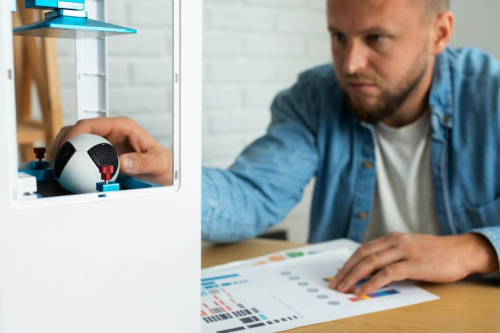Quick Listen:
The growth of the software testing market, valued at $51.8 billion in 2023, is set to expand at a compound annual growth rate (CAGR) of over 7% through 2032. This expansion is driven by continuous innovation, as companies strive to deliver flawless software to meet evolving user expectations. Similarly, the regression testing service market, valued at $20.62 billion in 2024, is projected to reach $45.87 billion by 2031, growing at a robust 12.10% CAGR. The driving force behind this surge is AI's ability to address the challenges of modern software complexity, from sprawling codebases to frequent updates, with precision that manual testing cannot achieve.
Emerging Trends in AI-Driven Regression Testing
AI is no longer a distant promise but a transformative force in regression testing. Technologies like machine learning, natural language processing, and predictive analytics are streamlining once-cumbersome processes. AI-driven test case selection intelligently identifies only the test cases impacted by recent code changes, reducing testing time while maintaining comprehensive coverage. Self-healing test scripts adapt to minor interface changes such as a relocated button eliminating the need for constant script maintenance. Anomaly detection further enhances accuracy by identifying subtle irregularities that human testers might overlook, while predictive risk analysis prioritizes testing efforts on high-risk code areas.
Leading platforms like Testim, Mabl, and Functionize are embedding these AI capabilities into their tools, driving a seismic shift in quality assurance. The AI-enabled testing tools market, valued at $686.7 million in 2025, is expected to soar to $3,825.9 million by 2035, achieving an impressive 18.7% CAGR. These tools leverage AI and machine learning to automate and optimize testing, enhancing software quality, reducing manual effort, and accelerating defect detection with greater precision. This transformation is redefining how organizations ensure software reliability in an increasingly competitive landscape.
Real-World Applications and Case Studies
AI-driven regression testing is proving its value across industries where reliability is critical. For example, e-commerce companies have adopted AI-powered platforms to streamline testing processes, enabling faster feature rollouts while maintaining quality. In the financial sector, banks have utilized AI to ensure consistency across mobile and web platforms, enhancing user satisfaction by reducing interface-related issues. Cloud-based software providers have integrated AI-driven testing into their CI/CD pipelines, automating test maintenance and optimizing resource use. These tools integrate seamlessly with platforms like Jenkins and GitLab, embedding AI into agile workflows for faster releases and fewer defects.
Industry trends support these outcomes, with AI tools significantly improving testing efficiency. The global regression testing service market, valued at $2.5 billion in 2023, is projected to reach $6.8 billion by 2032, growing at an 11.5% CAGR. This growth is fueled by the rising demand for high-quality software and the need for continuous testing to ensure functionality after updates, particularly in sectors like banking, healthcare, and retail, where software integrity is paramount.
Challenges and Limitations of AI in Regression Testing
Despite its transformative potential, AI-driven regression testing faces significant hurdles. The initial investment in infrastructure, licenses, and training can be substantial, posing a barrier for smaller organizations. AI models require high-quality, structured data to perform effectively; poor or incomplete datasets can lead to unreliable results, such as missed bugs or false positives. The “black box” nature of some AI systems complicates debugging, as developers may struggle to understand why an issue was flagged. Integrating AI tools with legacy systems can also be challenging, often requiring significant customization.
Over-reliance on AI is another concern. While AI excels at automating repetitive tasks, it cannot fully replace human intuition and expertise. False positives or negatives in anomaly detection can undermine trust if not carefully managed. Experts recommend a hybrid approach, combining AI's efficiency with human oversight to ensure robust testing outcomes. As one testing platform CTO noted, “AI empowers testers to focus on strategic tasks, not repetitive ones.” Addressing these challenges requires careful planning and a commitment to balancing automation with human judgment.
Opportunities and Business Impacts
AI-driven regression testing offers transformative opportunities for businesses. By automating repetitive tasks, these tools accelerate time-to-market, providing a competitive edge in fast-moving industries. Cost savings are significant, with automation reducing manual testing efforts and self-healing scripts minimizing maintenance overhead. The scalability of AI tools allows them to handle increasingly complex test suites, aligning perfectly with agile and DevOps methodologies. Early adopters gain a strategic advantage, delivering reliable software while competitors struggle with outdated processes.
The test and measurement equipment market is experiencing steady growth, driven by increasing demand for precision tools that support digital transformation. Industries such as banking, healthcare, and retail where software reliability is critical are seeing the greatest benefits. Fewer bugs lead to improved customer satisfaction, while faster software updates help businesses remain agile and competitive, enhancing both operational efficiency and user experience.
The Future of AI in Regression Testing
The future of regression testing is undeniably AI-driven. By 2030, AI is expected to be a standard component of testing suites, seamlessly integrated into software development workflows. Emerging innovations, such as generative AI for automated test case creation, promise to further enhance efficiency. Industries beyond technology healthcare, automotive, and gaming are increasingly adopting these tools to ensure reliability in mission-critical systems.
Businesses looking to embrace AI-driven testing should start with pilot projects in low-risk environments, invest in training QA teams, and select tools that integrate smoothly with existing workflows. The stakes in software development are higher than ever, and AI-powered regression testing offers a path to stay ahead. By amplifying human tester's impact, these tools transform quality assurance into a strategic asset, ensuring reliability in a world increasingly shaped by software. Embrace AI-driven testing today to redefine quality and thrive in the digital age.
You may also be interested in: Best Impact of AI in Smart Testing in the Digital Era
Book a Demo and experience ContextQA testing tool in action with a complimentary, no-obligation session tailored to your business needs.
